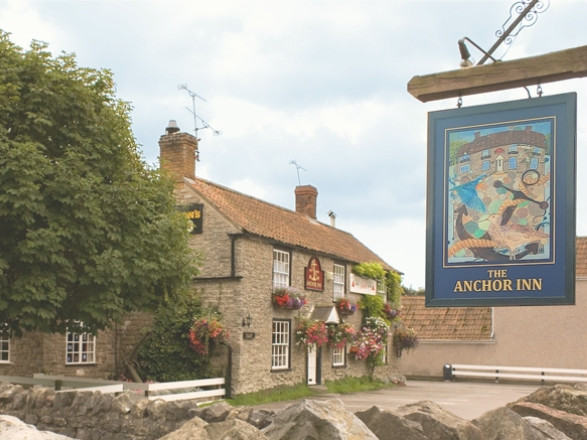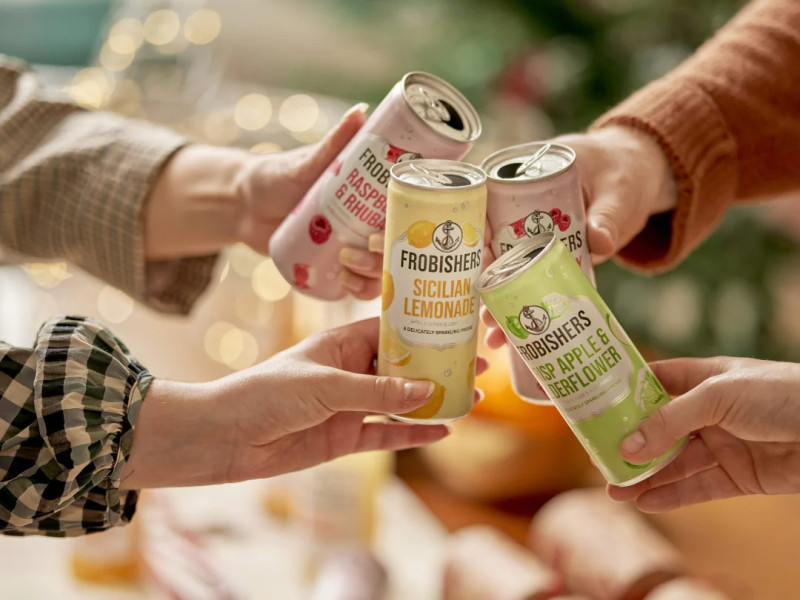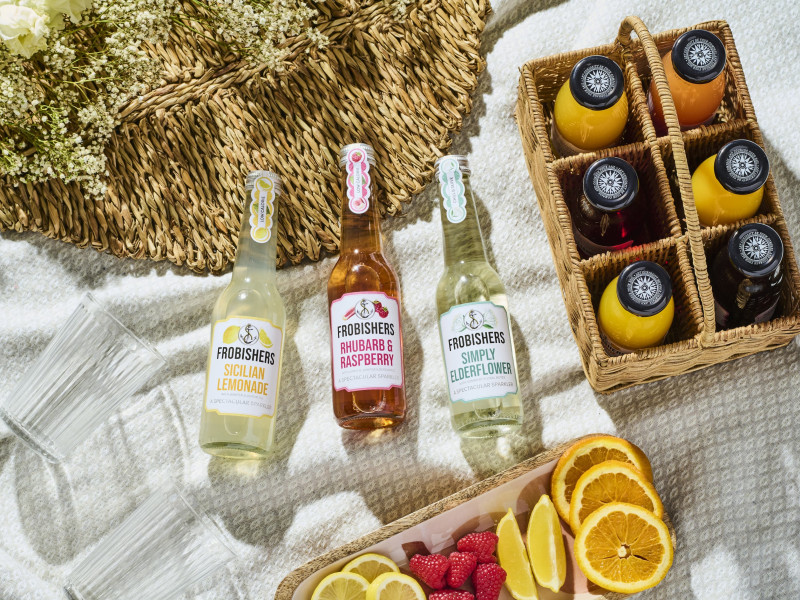Sustainability Spotlight | September: Frobishers
This month we’re turning out sustainability spotlight on Exeter based drinks producer, Frobishers. We asked them to tell us about the sustainability ethos at this carbon-neutral business and were impressed by the data-driven approach which allows them to measure progress and drive change in their supply chain.
Tell us a little bit about Frobishers?
It all began at The Anchor pub in Oldbury-on-Severn where Frobishers founder Mike Dowdeswell saw a gap in the market for premium juice and started the business offering not-from-concentrate apple juice from the boot of his car.
In 1999 Frobishers became a limited company, before being acquired by a new team in Exeter in 2009. Since 2009 the brand has evolved both visually and in range, now offering 20 products across four ranges.
The Frobishers brand has always stood for quality, and we apply that to all that we do. Our drinks can be found in finest pubs, bars, restaurants, and hotels across the UK.
What have you done to make your business more sustainable?
We try and work with local suppliers as much as possible. We use Devon based businesses to contract pack some of our ranges, as well as sourcing our product labels and cardboard packaging locally.
Many of our ingredients are procured from an Exeter-based business who we have worked closely with since 2009. We prioritise longstanding relationships with like-minded suppliers over profit. We never use air freight in our supply chain to keep emissions as low as possible.
All our packaging is 100% recyclable. Our online orders are sent out in plastic-free, FSC approved paper based packaging, and we have recently managed to remove the shrink wrap for our trade sales of cans by using cardboard boxes instead. Local customers are able to return packaging to us for re-use.
We have been carbon neutral since 2022, working hard to reduce our emissions and then offsetting the balance. We really enjoy working with our suppliers to try and drive their sustainability efforts forward. A few examples are:
One of our bottling sites has an anaerobic digestion plant generating its own energy from waste citrus peel.
Our main glass supplier has installed photovoltaic panels, providing 100% of energy during the day and more than 30% of total energy requirements for the production site.
Our main haulier is exploring various fuel alternatives such as Liquid Natural Gas and Hydrogenated Vegetable Oil fuelled vehicles
We have also worked with our customers to streamline logistics and therefore reduce our transport emissions. Some of our largest wholesale customers are now taking their orders straight from the bottling line, meaning they get the freshest juice possible, and we don’t have to ship to our warehouse as well as to the customer. This reduced our overall carbon footprint by nearly 4% last year.
We understand the importance of a thriving natural world and support a range of biodiversity projects across the UK to preserve natural habitats and rejuvenate forests. We partner with different wildlife trusts across the UK each year. Most recently, we are supporting a project to rewild Helman Tor in Cornwall.
What would you like to change in the future to improve your sustainability credentials further?
We’re always working to improve! Earlier this year, we undertook a life cycle assessment for our full range of products, meaning we now better understand the emissions generated from growing the fruits used in our juices, all the way through the supply chain, right down to the end user disposing of the bottle and it being recycled.
This has given us lots of areas to work on in the future and has highlighted packaging as our first priority. We have just successfully trialled a new bottle, meaning that our Fusion and Sparklers ranges will be packed in a bottle that is 14% lighter going forwards. This should save us around 341 tonnes of carbon emissions over the next three years.
We would also like to work more with our local community. We are excited to be partnering with Societree to establish a forest school in our closest primary school. The particular plant mix chosen has been proven to sequester up to 30 times more carbon than a traditional forest, as well as being significantly more biodiverse. As part of the project, we’ll be working closely with the school to provide assemblies and two years’ worth of books for the children, to inspire the next generation.
What tips do you have for other businesses that want to become more sustainable?
Gather as much data as you can early on in your journey. It is difficult to demonstrate that you are making improvements if you haven’t obtained data before working to reduce emissions. Not everything you do will have quantifiable emission reductions, but it’s good to measure them when you can.
It can be daunting to read about the achievements of larger brands who own their factories and premises and, as a smaller business, to find significant sums of money to fund some of the things we would love to do. But just start! Calculate your emissions so you know the scale of the challenge and then focus on what you can change.
It’s important to be authentic to avoid greenwashing, so don’t be afraid to talk about your shortcomings. Use your voice to lobby for further change in your supply chain. We are open about the fact that many of the fruits we use can’t be grown in the UK, and so we do have some unavoidable emissions and we don’t claim to be perfect.
But having sustainability as a key pillar of the business ensures that we are talking about it all the time with suppliers. With many voices joining in this can really affect change.
For more information about Frobishers’ sustainability commitments and progress click HERE and to build your own box of their delicious juices, pressés, sparklers and fusion drinks please visit their website at frobishers.com


